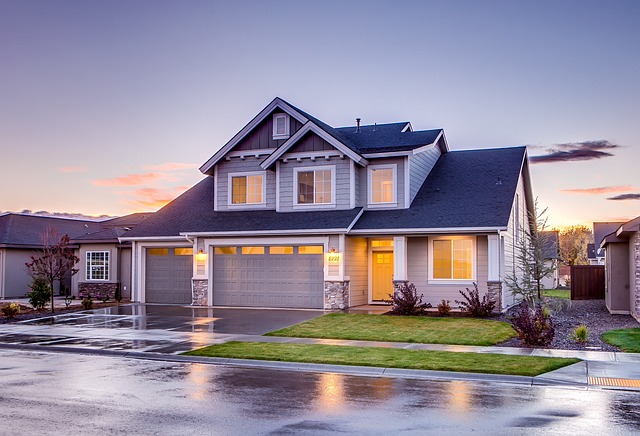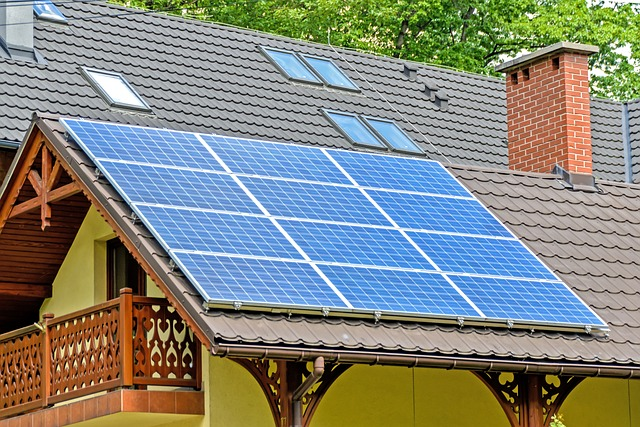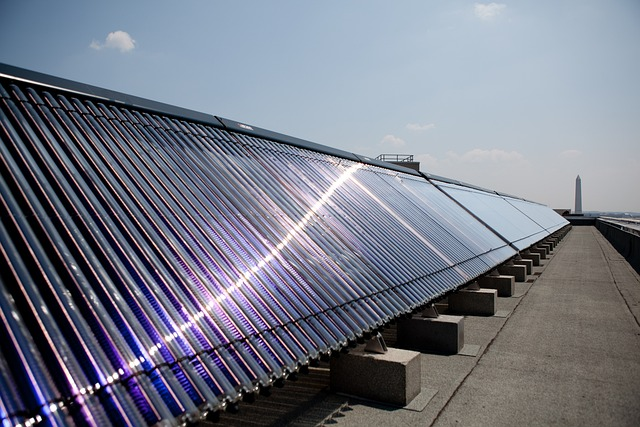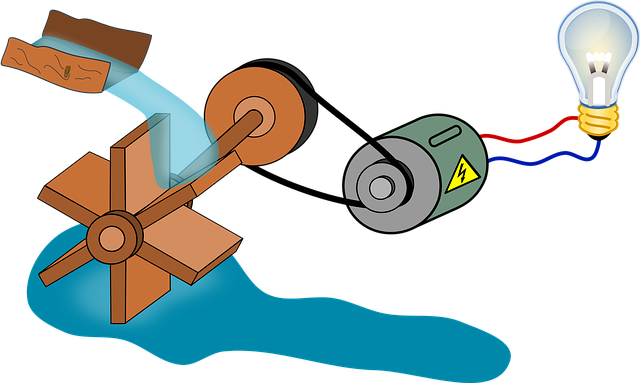With the growing awareness of the environmental impact of traditional energy sources, many homeowners are seeking to incorporate renewable energy systems into their homes. But with many options available, how do you determine the best home renewable energy source for your needs?
In this blog post, we will walk you through the process of evaluating your home’s renewable energy potential, exploring various solutions such as solar, wind, hydropower, and heat pumps, and providing insights into financial incentives and support, as well as advice on making your home energy efficient and choosing the right installer. Get ready to embark on a journey towards a greener, more sustainable future for your home!
Key Takeaways
- Evaluate your home’s renewable energy potential and identify cost-effective solutions to decrease consumption.
- Consider solar, wind, hydropower or heat pumps for a sustainable heating solution.
- Maximize benefits through an energy audit & installation of insulation with the help of certified installers & financial incentives.
Evaluating Your Home’s Renewable Energy Potential

Before exploring renewable energy options, assessing your home’s ability to generate such energy is a vital step. This process involves considering factors such as your location, climate, and energy consumption, which will play a significant role in determining the best renewable energy source for your home. A thorough analysis of available products, costs, system sizes, and installation requirements helps you decide on the most suitable renewable energy technology for your home.
Some key considerations include:
- Your intention to replace your existing heating system
- The desire to save energy and make your home more sustainable
- The potential for cost savings
- Whether the system should provide all your energy needs or work with another system.
Location and Climate
The efficiency and effectiveness of renewable energy systems are highly influenced by location and climate. Given that different renewable energy sources perform best in different climates, it’s important to identify the source that suits your home’s specific climate and location.
For instance, different types of renewable energy are most effective in specific regions:
- Geothermal power is most effective in regions close to geothermal activity.
- Wind power works best in areas with consistent and strong winds.
- Solar power is optimal in sunny climates.
- Hydroelectric power is suitable for areas with rivers or other water sources with strong flow.
- Biomass energy can be utilized in various climates.
Energy Needs and Consumption
An energy audit proves invaluable in understanding and assessing your energy needs and consumption. An energy audit evaluates the energy efficiency of your home, pinpointing areas where energy is being inefficiently used and providing suggestions on how to decrease energy consumption.
Renewable energy systems, such as solar thermal panels, offer clean, reliable, and cost-efficient solutions, which can significantly reduce energy costs and reliance on fossil fuels and decrease greenhouse gas emissions. Solar thermal systems harness the sun’s energy to heat water. An example is using the sun’s rays to heat hot water. These panels have the following benefits:
- They are reliable
- They are uncomplicated
- They are efficient
- They have a lengthy lifespan
- They are cost-effective to install.
Developing a comprehensive plan that considers your home with renewable energy needs, local climate, and available renewable energy sources helps identify your home’s most cost-effective and efficient renewable energy system.
Solar Energy Solutions

Among the most popular renewable energy options for homeowners are solar energy solutions. These solutions encompass solar photovoltaic (PV) panels and solar thermal systems, both of which can help reduce energy bills and carbon footprint.
Solar PV systems, a type of renewable energy technology, convert sunlight directly into electrical energy. Even on cloudy days, solar panels can generate power, although direct sunlight does help increase the efficiency of the process. Excess power generated by solar panels can be stored in batteries or sold into the national electricity grid through the Government’s Smart Export Guarantee (SEG) scheme, providing additional savings and benefits.
Solar Photovoltaic (PV) Panels
Solar photovoltaic (PV) panels employ photovoltaic cells to convert sunlight into electricity. This electricity can then be used to power homes and businesses. The benefits of utilizing solar PV panels include:
- A renewable energy source
- Reduced electricity bills
- Diverse applications
- Low maintenance costs
- Being environmentally friendly as they do not emit harmful greenhouse gases.
Additionally, new solar technology has the capability to store excess solar energy for later use. This means that even during periods of low sunlight, your solar PV panels can still provide electricity to your home, making them an ideal solution for generating renewable energy consistently.
Solar Thermal Systems

Conversely, solar thermal systems harness the sun’s energy to heat water, reducing reliance on conventional heating methods and lowering energy bills. These systems employ a collector filled with a fluid that is heated by the sun’s rays, which is then transferred to the hot water tank to warm the water.
Solar thermal panels can offer approximately 90% of hot water needs during summer and about 25% during winter. Moreover, solar thermal panels are more cost-effective to install than other renewable systems, making them an attractive option for homeowners looking to decrease their reliance on traditional heating methods and reduce their carbon footprint.
Wind Power Options

For homeowners in windy regions, wind power options like roof-mounted and freestanding turbines offer a sustainable energy source, generating electricity and reducing grid reliance. Wind power is a form of renewable energy that utilizes large turbines to capture the kinetic energy of the wind and convert it into electricity.
Utilizing wind power provides a clean, efficient way to generate electricity, helping lower energy bills and fostering a more sustainable home.
Roof-Mounted and Freestanding Turbines
Roof-mounted and freestanding wind turbines offer distinct advantages for homeowners looking to harness the power of the wind for their energy needs. Roof-mounted turbines benefit from elevation, providing increased wind force and electricity generation, and are cost-effective to install compared to freestanding turbines.
Freestanding turbines, on the other hand, offer increased power and improved utilization of wind, with the capacity to generate more electricity and potentially act as a standalone renewable energy generation solution. A 6kW pole-mounted turbine can be beneficial in many ways. It could save you around £340 per year on your electricity bills. Additionally, it can earn you up to £235 per year through Small-scale Embedded Generation payments.
Hydropower Solutions

For homeowners, particularly those living near consistently flowing rivers or streams, hydropower solutions present another renewable energy option. Harnessing the power of water through hydroelectric power provides a clean and efficient means of generating electricity.
Micro hydro technology, for instance, allows homeowners to generate their own power through the use of a hydro turbine. Small scale hydroelectric systems can generate sufficient electricity to supply a household with power when located on a river with a one-meter drop.
Leveraging the natural power of water, hydropower solutions provide an environmentally friendly, reliable energy source for your home.
Air and Ground Source Heat Pumps
Air and ground source heat pumps, which utilize naturally occurring heat from the air or ground, serve as energy-efficient heating and cooling solutions, effectively controlling temperature. These systems can generate three to four units of heat for every unit of electricity consumed, making them an efficient and cost-effective option for heating and cooling your home.
Beyond their energy efficiency, heat pumps present a more sustainable alternative to traditional heating systems, curtailing reliance on fossil fuels and lowering greenhouse gas emissions.
Air Source Heat Pumps
Air source heat pumps offer several benefits compared to traditional heating systems:
- They draw in outside air to heat homes and hot water, providing an eco-friendly and energy-efficient option.
- They can lead to annual savings of up to £1,330 when compared to older electric storage heaters.
- They can lead to annual savings of up to £1,410 when compared to an old gas boiler.
However, the efficiency and cost-effectiveness of air source heat pumps are dependent upon the level of insulation of the home, making it essential to ensure your home is well-insulated before installation.
Ground Source Heat Pumps
Ground source heat pumps, on the other hand, draw heat from the ground, providing a consistent temperature source for heating residential properties and reducing energy costs. These pumps offer a sustainable and energy-efficient option compared to traditional heating systems.
The cost of installing ground source heat pumps can be expensive, usually ranging from £1,500 to £2,000 per kilowatt. This type of system may not be within everyone’s budget. Therefore, it’s essential to weigh the potential long-term savings against the initial investment cost before deciding on a ground source heat pump for your home.
Biomass Heating Options
Biomass heating options, which involve burning organic materials like wood pellets or logs, provide an alternative approach to home heating, supplying heat and hot water. These systems offer a carbon-neutral alternative to traditional heating systems, as the carbon emissions produced during combustion are offset by the carbon absorbed during the growth of the biomass.
Additionally, biomass boilers may be eligible for RHI payments, which could help cover the cost of installation. If you have access to a sustainable supply of biomass fuel, a biomass heating system can be a viable and eco-friendly option for your home.
Financial Incentives and Support
Various financial incentives and support, such as grants and schemes, are available to assist homeowners in installing renewable energy systems and minimizing upfront costs.
For instance, the UK Government offers grants of up to £5,000 towards the upfront cost of installing a heat pump in your home.
Furthermore, the Smart Export Guarantee (SEG) is a government scheme that requires energy suppliers with a customer base of more than 150,000 to compensate those who generate solar energy and send it to the National Grid.
Leveraging these financial incentives and support can render the transition to renewable energy more affordable and accessible for your home.
Making Your Home Energy Efficient
Ensuring your home is energy efficient before installing any renewable energy systems is vital to maximize benefits and minimize energy consumption. An energy audit can be a valuable tool in identifying areas of energy loss in your home, such as drafts, inadequate insulation levels, and inefficient heating systems.
Additionally, the efficiency and cost-effectiveness of heat pumps are dependent upon the level of insulation in the home. By taking measures to make your home energy efficient, such as installing loft insulation, cavity wall insulation, and blocking drafts, you can create an ideal foundation for the successful implementation of renewable energy systems.
Choosing the Right Installer
Selecting the right installer plays a critical role in the successful implementation of renewable energy systems in your home. A reputable installer can ensure proper installation, warranty coverage, and optimal system performance. When selecting an installer, it’s essential to obtain and verify references to ensure the company has a positive history and experience with the equipment from multiple manufacturers. Additionally, make sure the installer is certified by the relevant industry body, such as HETAS for biomass boilers.
Choosing the right installer ensures your renewable energy system is installed to the highest standards, providing efficient, sustainable energy for years to come.
Summary
In conclusion, incorporating renewable energy systems into your home can greatly reduce your carbon footprint, decrease energy consumption, and ultimately save you money on your energy bills. By evaluating your home’s renewable energy potential, considering factors such as location, climate, and energy needs, and exploring various solutions such as solar, wind, hydropower, and heat pumps, you can find the best renewable energy source for your specific needs. Don’t hesitate to embrace the future of sustainable living and make the switch to renewable energy today!
Frequently Asked Questions
What is the cheapest renewable energy source for the home?
Split text into paragraphs: Paragraph 1: Solar energy is the cheapest renewable energy source for the home, costing significantly less than other alternatives. It continues to become more affordable every year, making it a great choice for anyone looking for an efficient and cost-effective renewable energy solution.
How can I heat my house with renewable energy?
You can heat your home with renewable energy by installing a heat pump, solar water heating system, biomass system, or combining various systems.
Which renewable energy source is best for UK?
Wind is the best renewable energy source for the UK, as it beats other renewables by 13.8%, and produces 18% of the total energy in the country. It also outperforms combined electricity generation from coal, oil and other sources by 6.5%.
What is the most promising renewable energy source?
Wind energy is the most promising renewable energy source, as evidenced by Jacobson’s research which found that it is the most promising among sources such as solar, geothermal, tidal, photovoltaics, wave, and hydroelectric.
How do I determine the best renewable energy source for my home?
Consider factors such as location, climate, and energy consumption, as well as renewable energy technology options to determine the best renewable energy source for your home.
